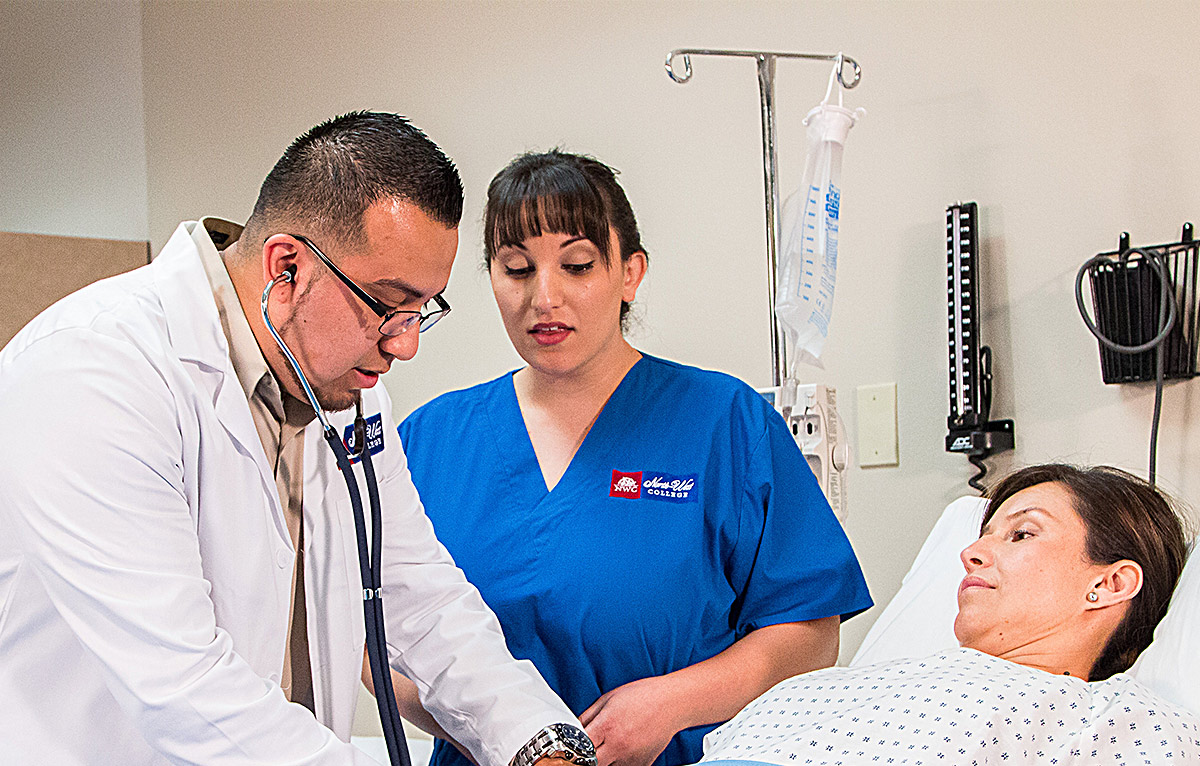The Medical Assistant program is divided into eight class course modules plus a 144-hour clinical externship where students will apply the skills they learn in the classroom in an actual health care practice setting.
After successful completion of the Medical Assistant program, the graduate will be qualified to work in doctor's offices, general medical clinics or urgent care clinics. The student will be able to perform the duties required for examinations, use diagnostic equipment, perform laboratory duties, and function in all phases of the business office, including having a working knowledge of data input on the computer. Graduates will be qualified to accept entry-level or middle-level positions.
Courses for this program include:
- Seminar for Success- Orientation and success building course for Career Students. Review of basic math, language, vocabulary, and writing skills. Introduction to core career classes, availability of community resources, outlining, summarizing, managing credit, and other life skills
- Medical Front Office (Secretarial I)- Medical Terminology & Abbreviations, Transcribing, Trade and Generic Medications, History of Medicine, Letter Writing, Bookkeeping/Daysheets, Banking, Payroll, Collections, Special Senses and Nervous Systems
- Medical Insurance and Coding (Secretarial II)- Medical Terminology, Transcribing, Trade and Generic Medications, The Endocrine System, Making Appointments, Medical Ethics & Law, Insurance Terminology, CPT Coding, ICD-9 CM Coding, Insurance Billing (CMA-1500) for: Private Insurance, Medicare, Medi-Cal, SDI, & Worker’s Compensation
- Communications/Computers - Résumé, Cover Letters, Telephone Techniques, Rapport with Patients & Fellow Team Members, Introduction to Computers, Word, Excel, Medi-Soft, Processing Electronic Insurance Claims, & Creating Professional Quality Résumés
- Office Procedures I - Medical Terminology, Medications (Administration and Dosage), Pharmacology, Use of the PDR, Metric System, Medication Conversions, Vital Signs, Injections, Physical Therapy Modalities, The Muscular, Respiratory, & Integumentary Systems
- Office Procedures II - Medical Terminology, Instruments, Instrument Tray Set-ups Positioning Patients for Exams, First Aid/Bandaging, Aseptic Techniques, Autoclaving/Sterilization, Nutrition, Child Development, The Reproductive and Digestive Systems
- Lab and EKG - Medical Terminology, Venipuncture, Hematocrits, Differential Slides: Staining & Viewing, Urinalysis, Basic Prep for X-Ray Exams, Taking and Mounting EKG’s, Communicable Diseases, Classification of Bacteria, The Excretory, Skeletal, Lymphatic, & Cardiovascular Systems
- Career Seminar - Internship Workshop, Career Readiness Workshops, New Student Orientation, and CPR Certification
- Clinical Internship - Internship to apply the knowledge and skills learned in the classroom in an actual practice setting
